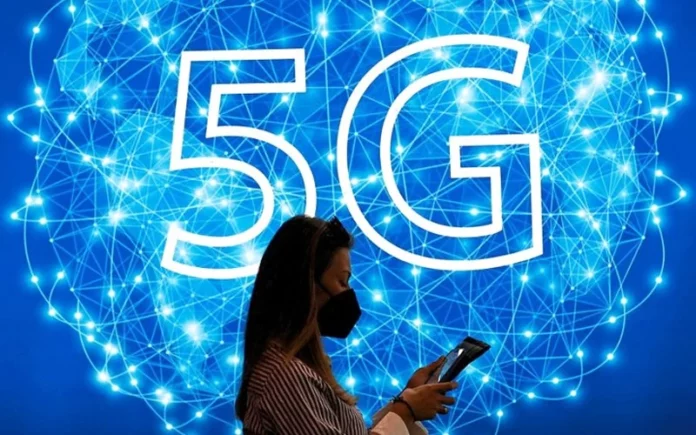Malaysia’s controversial 5G rollout has become a bone of contention between the US and China.
PETALING JAYA May 5 (FMT news) : The government of Prime Minister Anwar Ibrahim must not be cowed by foreign powers seeking to influence its decision as it undertakes a review of the country’s controversial 5G network rollout, analysts said.
In addition, the government’s decisions pertaining to the 5G rollout should be based on technological criteria and not geopolitics.
The Financial Times (FT) reported that the US and European Union envoys to Malaysia warned the government over risks to national security and foreign investment amid a purported interest from China’s telecommunication giant Huawei for a role in the country’s 5G rollout.
The UK newspaper said the envoys wrote to the administration last month after it decided to review a decision to award Swedish telecommunications group Ericsson the tender to build the state-owned 5G network.
Commenting on the FT report, EMIR Research CEO Rais Hussin said the age of “foreign powers dictating what we need to do is long gone”.
“We should adopt the ‘friend of all, enemy of none’ policy,” he told FMT Business.
“Decisions must be based on technological criteria, with commercial and financial sustainability (in mind) and done through open tender with transparency and best governance practices.”
Rais said it is important to allow local telecommunication companies the latitude to decide on the technology suppliers and partners for the 5G network.
“This will excite the local economy through fresh fund injections and the re-awakening of telco counters on Bursa Malaysia that have been in a deep slumber,” he said.
Last December, Anwar ordered a review of the RM11 billion 5G contract awarded by Digital Nasional Bhd (DNB) – a special purpose vehicle created under the finance ministry – to Ericsson under the previous administration.
In a press conference on Wednesday, communications and digital minister Fahmi Fadzil brushed off concerns raised by the US and EU over the government’s review of the 5G project.
“It’s important for us to stress that as a sovereign nation, Malaysia and the Malaysian government have the right and power to decide on our own policies without interference by others,” he said.
He also said the government had agreed to a second 5G service provider, with the shift to a dual network to commence in Phase 2 of the 5G network rollout, likely by early 2024.
5G rollout ‘politicised’
S. Rajaratnam School of International Studies adjunct senior fellow James Dorsey said the 5G rollout around the world has been increasingly politicised, putting countries like Malaysia in a bind.
He was alluding to the move by the US and its allies to ban or restrict Huawei from participating in 5G network projects in their countries, as well as persuade other governments to do the same.
This campaign to ban Huawei from 5G network projects is led by the US and supported by the EU and UK, and is seen as part of the great power competition between the US and China.
This probably explains why the US and EU envoys to Malaysia are warning the Anwar government about “risks to national security” if Huawei was allowed to be involved in the 5G rollout.
However, many countries are pushing back against the pressure exerted by the US to ban Huawei. Dorsey cited the example of Saudi Arabia, a traditional US ally in the Persian Gulf area, which has in recent times moved closer to Russia and China.
“Saudi Arabia has a security relationship with the US, but that will not prevent the Saudis from taking a position at times that is not aligned with US policy.
“We are moving towards a world in which middle powers have greater leverage and greater agency, and big powers will have to deal with it,” he said.
Pacific Research Center of Malaysia principal adviser Oh Ei Sun concurs, adding the impending 5G decision by Malaysia is not merely a business or technical matter.
“Rather, it has huge geopolitical implications in the context of the confrontation between China and the West.
“Therefore, Malaysia’s decision will be seen by both sides as a middle-income developing country picking sides in this epic worldwide showdown.
“China will not view it kindly if the decision is not in favour of Huawei, hence a showdown is impending,” Oh told FMT Business.
Sabre-rattling by great powers
Malaysia University of Science and Technology economics professor Geoffrey Williams describes the “warning from the US and EU” to Malaysia as sabre-rattling, and aimed to ensure US and EU companies are favoured in any future bids.
On the security risks raised by the US and EU envoys, Williams pointed out that such security concerns also exist with US and EU technologies.
“So, cybersecurity and strategic security implications have to be evaluated for all parties just as they were for the first tenders,” he said.
Monash University Malaysia economics professor Niaz Asadullah said the US and EU seem alarmed by Malaysia’s close alliance with China and the announcement to review the 5G tender award.
“However, the prime minister cannot ignore the geopolitics of foreign direct investment,” Niaz said, adding that as Anwar tries to balance his international and western outlook with an increasingly pro-China stance, he must avoid questionable choices.
“On the one hand, he is championing transparency, business friendly investment climate, and free market principles to attract foreign investment. On the other, his public engagements (are aimed at) strengthening the existing economic relationship with China.
“Given this geopolitical reality, Anwar is in a catch-22 scenario,” Niaz said.



















